第5章
He turned he papers over listlessly.There was a description anda picture of the "Weightman Wing of the Hospital for Cripples,"of which he was president; and an article on the new professor inthe "Weightman Chair of Political Jurisprudence" in Jackson University, of which he was a trustee; and an illustrated account of the opening of the "Weightman Grammar-School" at Dulwich-on-the-Sound, where he had his legal residence for purposes of taxation.
This last was perhaps the most carefully planned of all the Weightman Charities.He desired to win the confidence and support of his rural neighbors.It had pleased him much when the local newspaper had spoken of him as an ideal citizen and the logical candidate for the Governorship of the State; but upon the whole it seemed to him wiser to keep out of active politics.It would be easier and better to put Harold into the running, to have him sent to the Legislature from the Dulwich district, then to the national House, then to the Senate.
Why not? The Weightman interests were large enough to need a direct representative and guardian at Washington.
But to-night all these plans came back to him with dust upon them.
They were dry and crumbling like forsaken habitations.The son upon whom his complacent ambition had rested had turned his back upon the mansion of his father's hopes.The break might not be final;and in any event there would be much to live for; the fortunes ofthe family would be secure.But the zest of it all would be gone if John Weightman had to give up the assurance of perpetuating his name and his principles in his son.It was a bitter disappointment, and he felt that he had not deserved it.
He rose from the chair and paced the room with leaden feet.
For the first time in his life his age was visibly upon him.
His head was heavy and hot, and the thoughts that rolled in it were confused and depressing.Could it be that he had made a mistake in the principles of his existence? There was no argument in what Harold had said--it was almost childish--and yet it had shaken the elder man more deeply than he cared to show.
It held a silent attack which touched him more than open criticism.
Suppose the end of his life were nearer than he thought--the end must come some time--what if it were now? Had he not founded his house upon a rock? Had he not kept the Commandments?
Was he not, "touching the law, blameless"? And beyond this, even if there were some faults in his character--and all men are sinners--yet he surely believed in the saving doctrines of religion--the forgiveness of sins, the resurrection of the body, the life everlasting.
Yes, that was the true source of comfort, after all.He would read a bit in the Bible, as he did every night, and go to bed and to sleep.
He went back to his chair at the library table.A strange weight of weariness rested upon him, but he opened the book at a familiar place, and his eyes fell upon the verse at the bottom of the page.
"Lay not up for yourselves treasures upon earth."That had been the text of the sermon a few weeks before.
Sleepily, heavily, he tried to fix his mind upon it and recall it.
What was it that Doctor Snodgrass had said? Ah, yes--that it wasa mistake to pause here in reading the verse.We must read on without a pause--Lay not up treasures upon earth where moth and rust do corrupt and where thieves break through and steal--that was the true doctrine.
We may have treasures upon earth, but they must not be put into unsafe places, but into safe places.A most comforting doctrine!
He had always followed it.Moths and rust and thieves had done no harm to his investments.
John Weightman's drooping eyes turned to the next verse, at the top of the second column.
"But lay up for yourselves treasures in heaven."Now what had the Doctor said about that? How was it to be understood--in what sense--treasures--in heaven?
The book seemed to float away from him.The light vanished.
He wondered dimly if this could be Death, coming so suddenly, so quietly, so irresistibly.He struggled for a moment to hold himself up, and then sank slowly forward upon the table.His head rested upon his folded hands.He slipped into the unknown.
How long afterward conscious life returned to him he did not know.
The blank might have been an hour or a century.He knew only that omething had happened in the interval.What is was he could not tell.
He found great difficulty in catching the thread of his identity again.
He felt that he was himself; but the trouble was to make his connections, to verify and place himself, to know who and where he was.
At last it grew clear.John Weightman was sitting on a stone, not far from a road in a strange land.
The road was not a formal highway, fenced and graded.It was more like a great travel-trace, worn by thousands of feet passing across the open country in the same direction.Down in the valley, into which he could look, the road seemed to form itself gradually out of many minor paths; little footways coming across the meadows, winding tracks following along beside the streams, faintly marked trails emerging from the woodlands.But on the hillside the threads were more firmly woven into one clear band of travel, though there were still a few dim paths joining it here and there, as if persons had beenclimbing up the hill by other ways and had turned at last to seek the road.
From the edge of the hill, where John Weightman sat, he could seethe travelers, in little groups or larger companies, gathering from time to time by the different paths, and making the ascent.